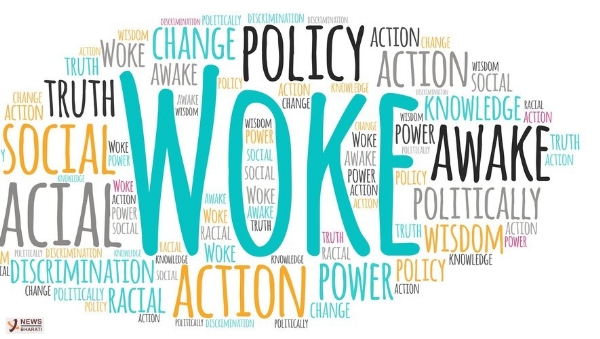Introduction to Wokeism and woke culture #1
To be woke means to be alert/conscious/aware of oppression, social justice, etc. around you.
Total Views |
In March 2022, the NALSAR University of Law, Hyderabad introduced “gender-neutral” washrooms on its campus. This came after the incident of NCERT teachers' training manual which proposed gender-neutral toilets and puberty blockers for children in Indian schools to promote “gender inclusiveness”. These two incidents can be termed to be representative of the “Woke Culture” phenomenon which is prevalent in the U.S. and Europe and is also becoming visible in India.

What does it mean to be Woke?
To be woke means to be alert/conscious/aware of oppression, social justice, etc. around you. The wokes are those who believe that only they possess the ability to see things that they believe to be true. It is to be born again with the highest consciousness. Woke people have a strong belief that everything is wrong with society and culture because other people are just not as smart as they are.
Origins of woke culture
The seeds of woke culture could be said to have been sown in Marxism. But post-Modernism can be said to be responsible for the growth of the woke culture. Marxism considers economics as the base and everything else like culture, as the superstructures. In the 1960s, when the failure of Marxism became visible, a few thinkers formed an opinion that there was a need to rethink Marxism. One of them was Antonio Gramsci, an Italian communist philosopher. He introduced the concept of Cultural Hegemony wherein he said that only the ruling class in power manipulates and decides the culture and the belief of the society. Hence the revolution of grabbing power must strike the culture. People like Gramsci, Michael Foucault, and Jacques Derrida rejected Marx and said that culture is the base and everything else is the superstructure. This was the time when a new faculty of “Cultural Studies” became prevalent across universities in the U.S., the U.K., and the rest of Europe. Prof. Stuart Hall from the Birmingham School of Cultural Studies said that their aim is not to destroy the old culture but to create a new one. But this advent of cultural studies soon died out in the 1980s.
It could be said that the Woke culture finally established itself in the first decade of the 21st century based on the three theories created in the 1990s. Those three theories are a) Critical Race Theory by Richard Delgado b) Queer Theory by Judith Butler c) Intersectional Feminism by Kimberle Crenshaw. These concepts spread across the universities in the U.S. and gradually in Europe over the next 15 years from the 1990s. These days, woke people see every White person to be a racist, every Black person to be a victim, every male sitting with his knees pointing outwards to be a patriarchal entitlement, and the concept of sex and gender to be different from each other. In a democratic setup, having these views is not incorrect, but enforcing these views on those who disagree with you, name-calling, and canceling them is just not right. The Woke people strongly believe in the concept of – If you are not with us, we are against you. A person speaking logically, rationally, scientifically, and statistically is canceled if that person doesn’t conform to the theories that the Woke people believe to be true.
Conclusion
The Woke Culture has entered almost every system in the U.S., and the one which has been most affected is the education system. With growing Westernization in India, the concept of the Woke Culture has started to enter the Indian systems as well. Though the spread is slow, it is important to ring the danger bells before it is too late.


